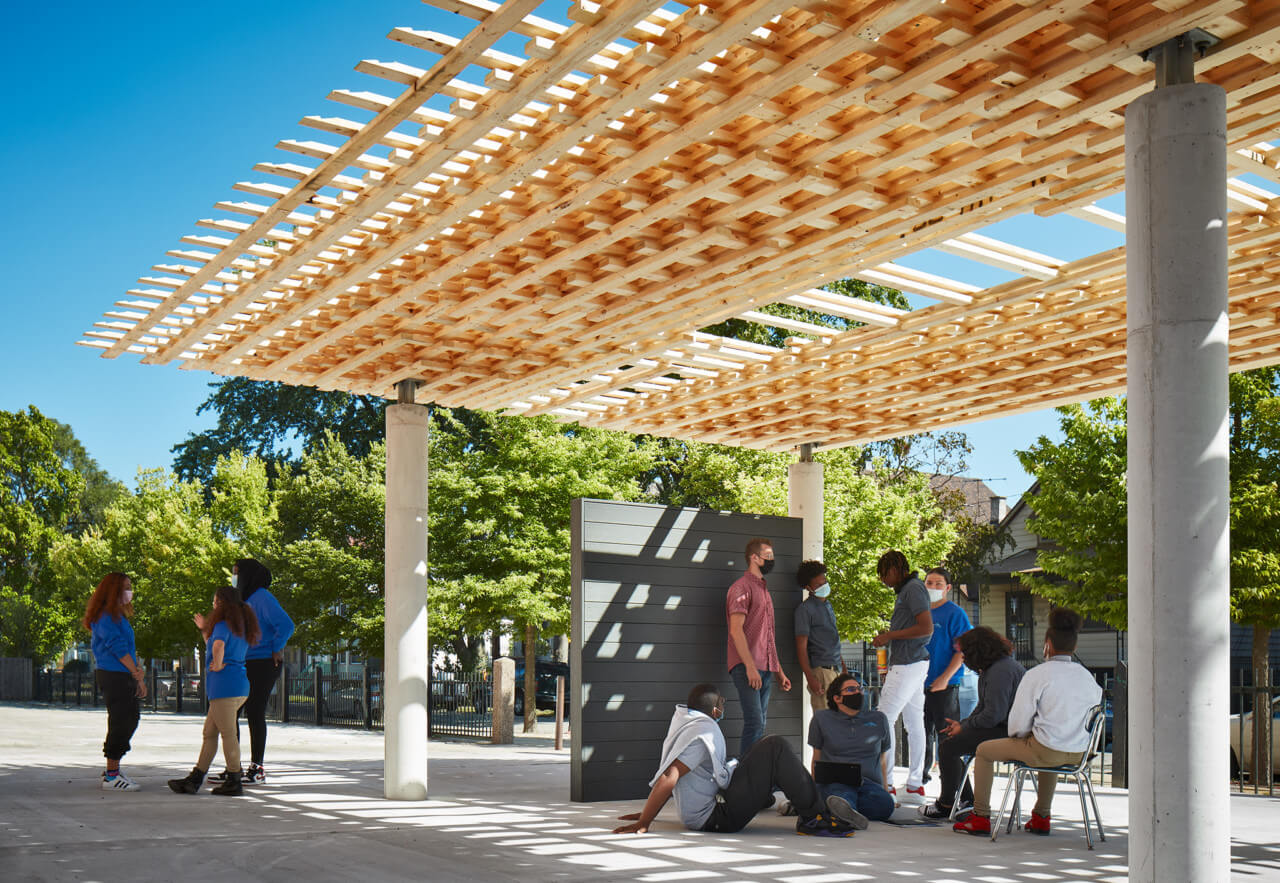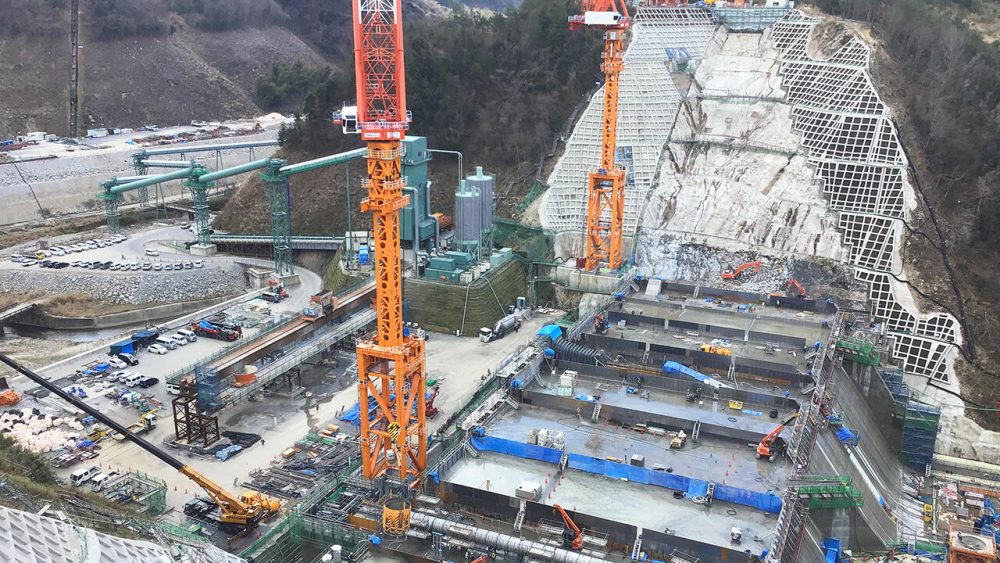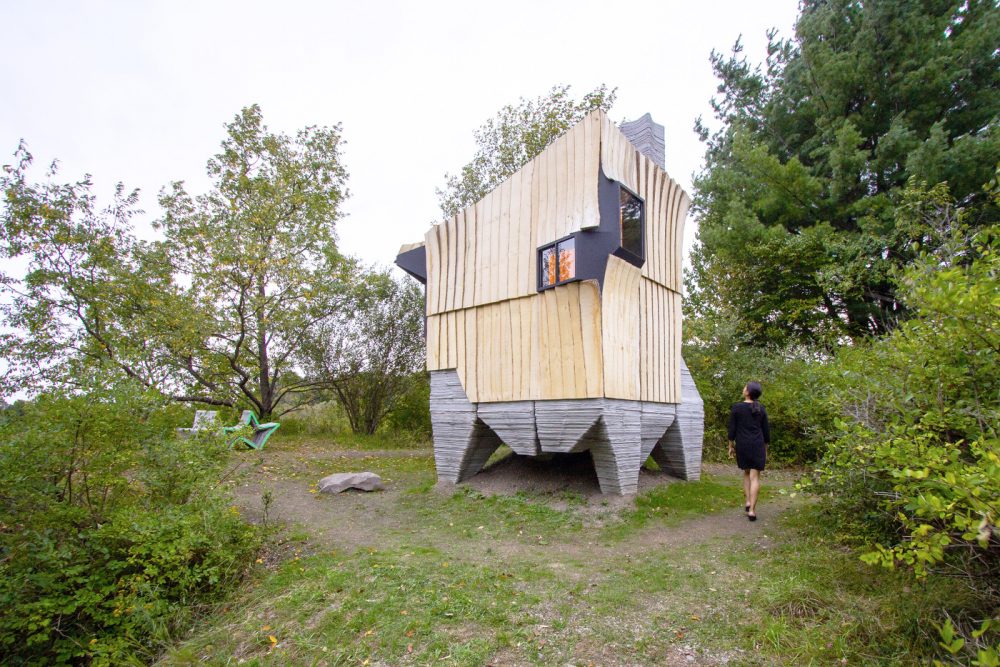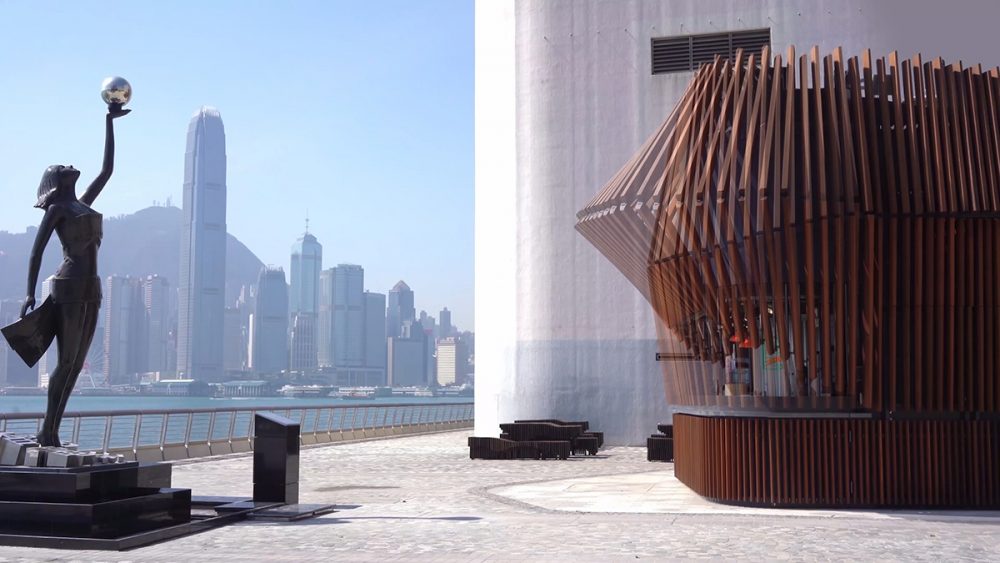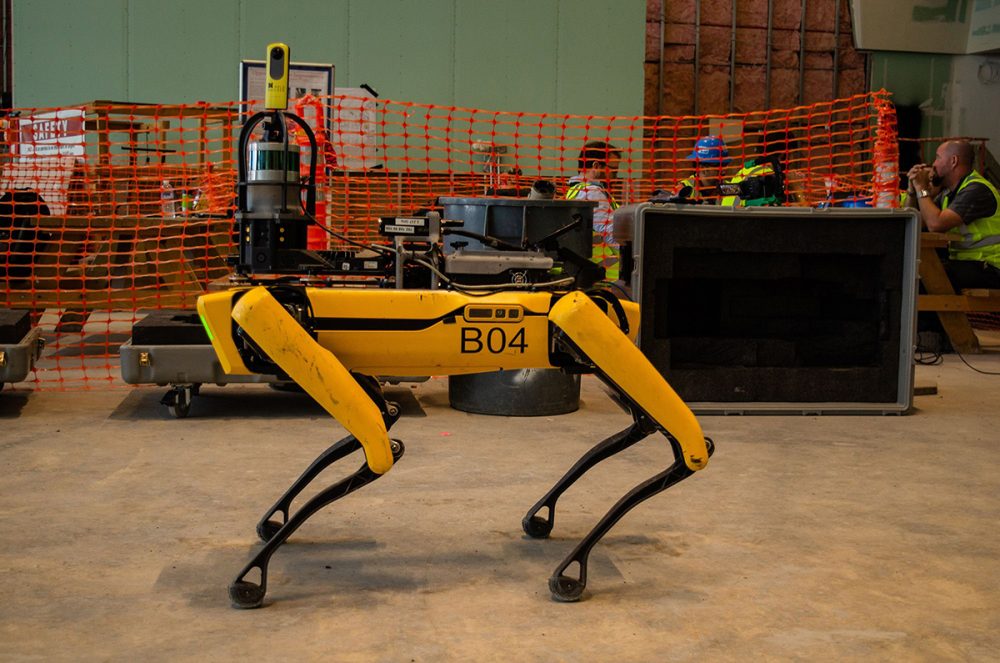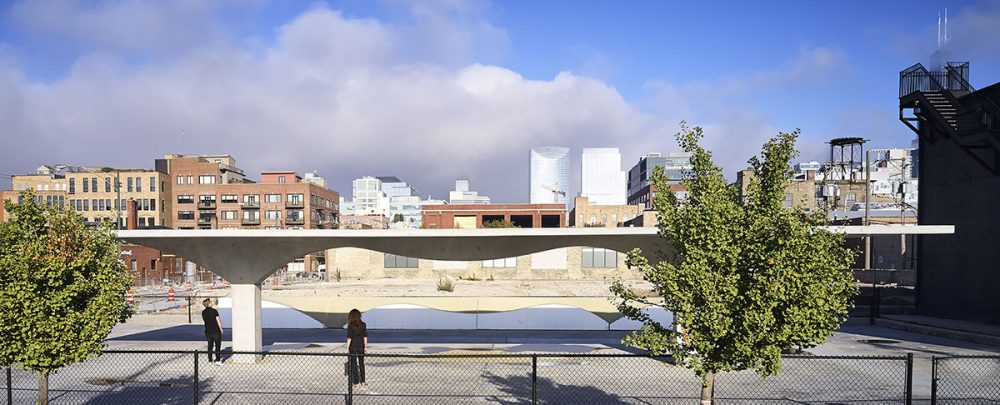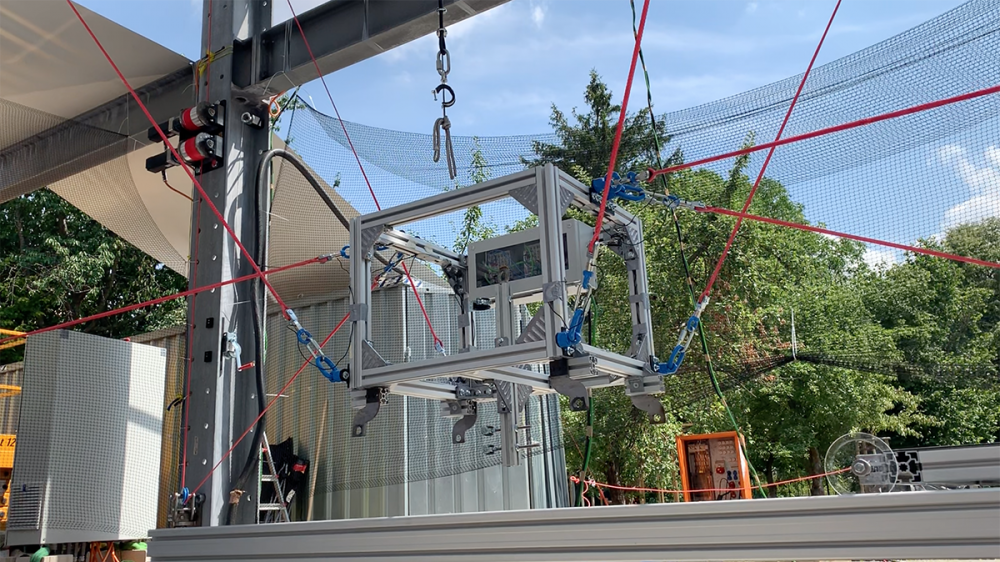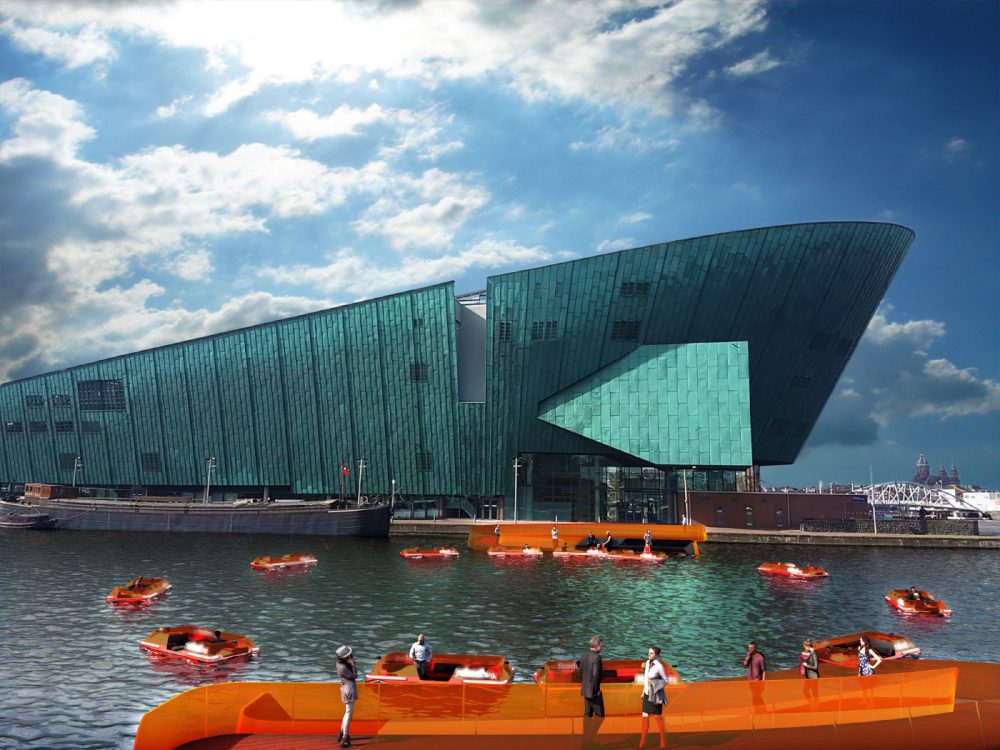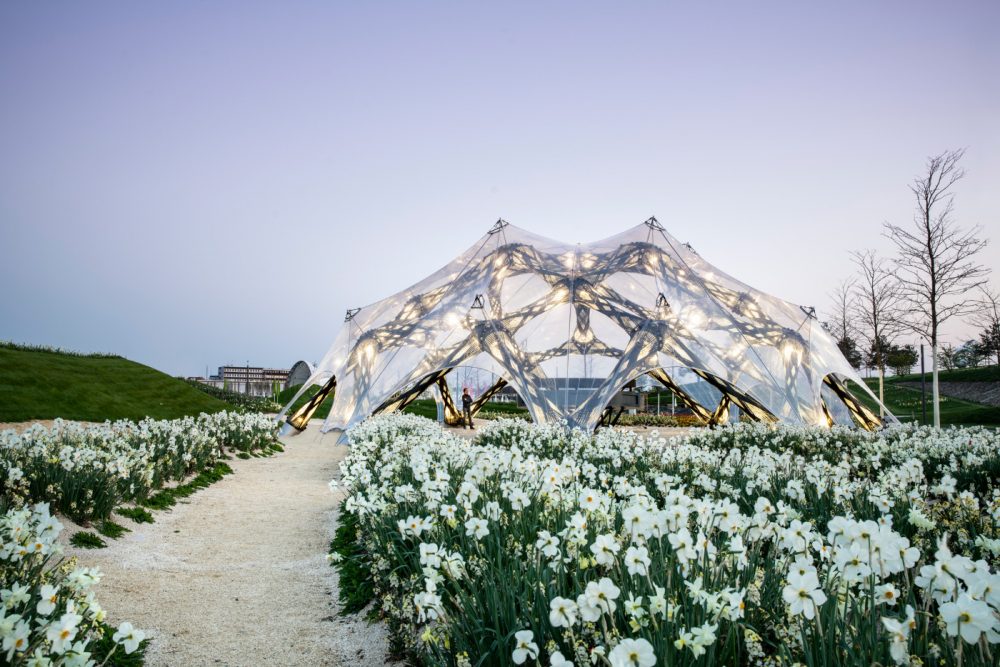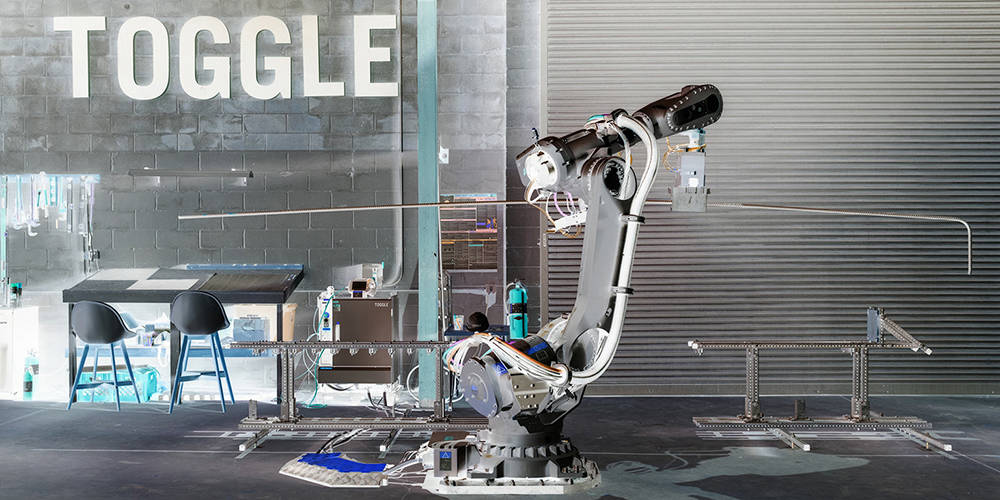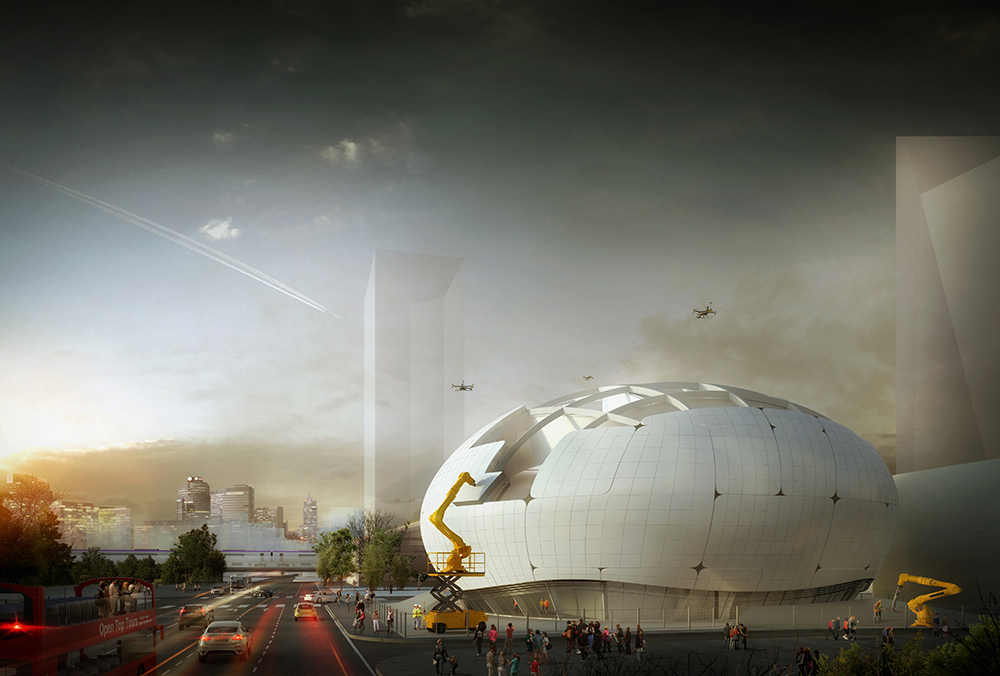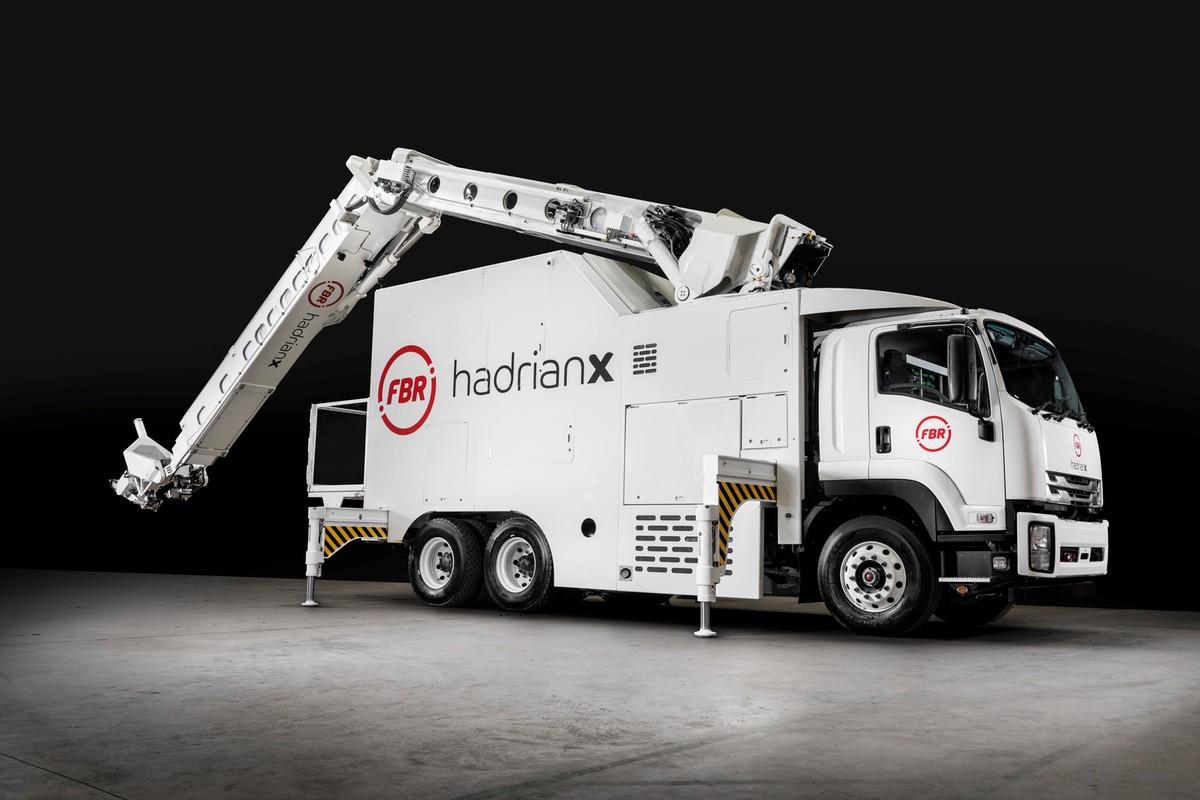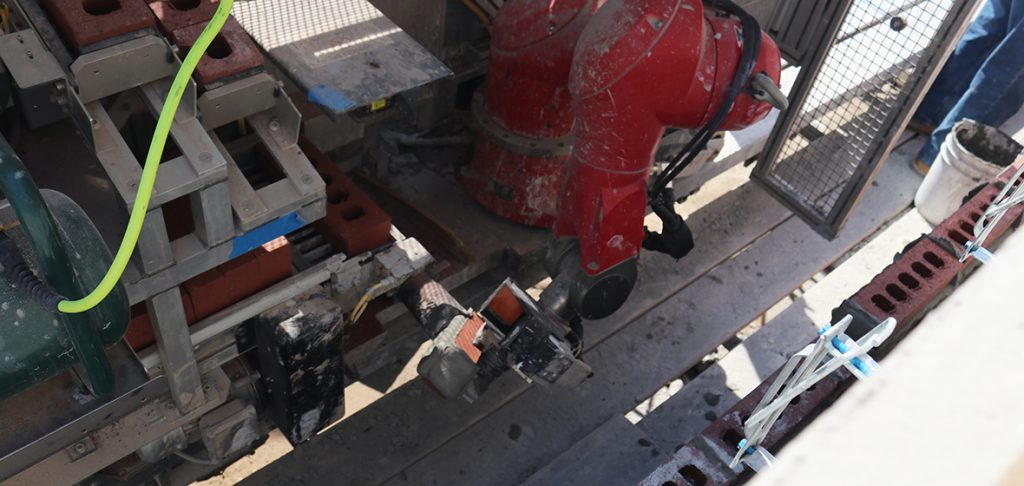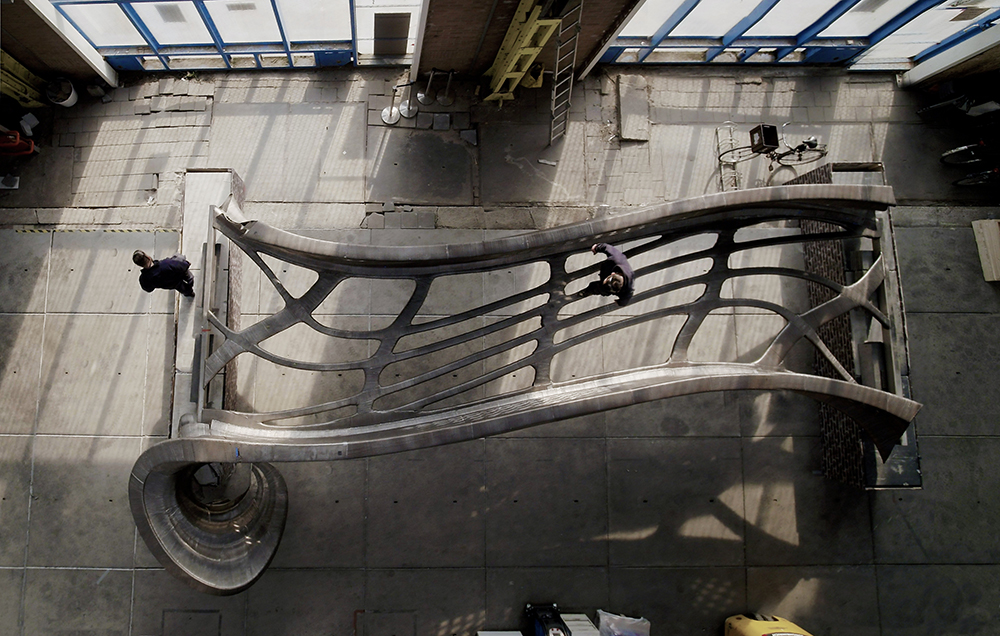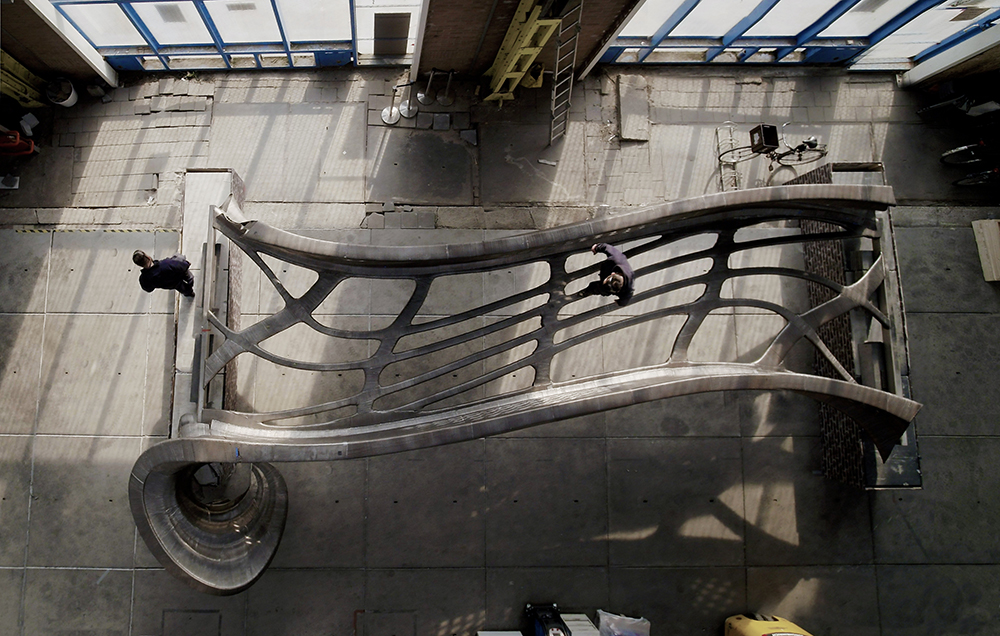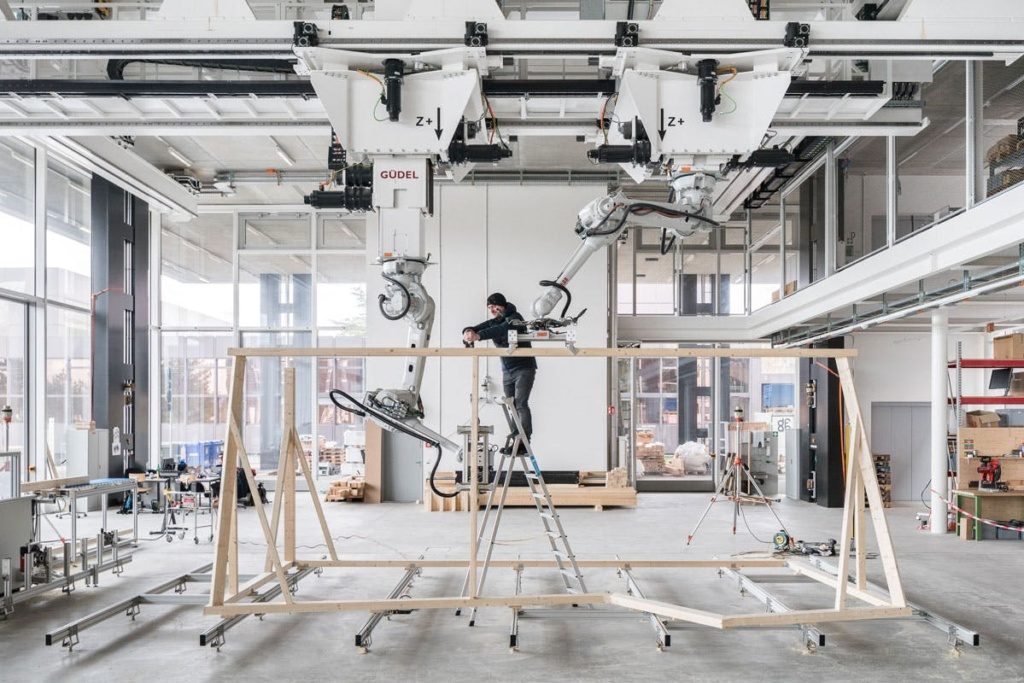In addition to the core exhibitions and dozen-plus commissioned architectural interventions now on view and activated at predominately city-owned vacant lots during the 2021 Chicago Architecture Biennial, over 100 civic, educational, and cultural partners have launched a range of events—exhibitions, installations, lectures, tours, and more—to coincide with the central festival programming. Among these complementary festival
Over the last few years, the Los Angeles area has seen a great influx of infrastructural and placemaking projects that emphasize the status of the pedestrian within the city, ranging from Frank Gehry’s reenvisioning of the L.A. River to the ongoing construction of Destination Crenshaw. The Arroyo Bridge, which wrapped up construction at the beginning of the pandemic but was only recently
Copenhagen-headquartered architectural practice 3XN has revealed its competition-winning design for a campus that will serve as the future home of two leading industrial robotics firms: Universal Robots (UR) and Mobile Industrial Robots (MiR). The roughly 215,000-square-foot space, located in Denmark’s third-largest city, Odense, appears from the design renderings to be more or less a standard,
Japan is facing a labor shortage: As the country continues to age, with 35 percent of the workforce is over 55, the construction industry is looking towards new ways to fill its widening labor gap (Japan has been relaxing its notoriously strict immigration policy towards lesser-skilled workers, but very slowly). One of those solutions is
Deep in the forests of Ithaca, New York, a short drive from the Cornell University campus, lies the newly completed Ashen Cabin, a practical example of how new manufacturing methods can turn what used to be waste into useful materials. The small cabin was built by HANNAH, the small practice headed by Leslie Lok and
Hong Kong-based firm LAAB Architects has realized the robotic Harbour Kiosk along the Avenue of the Stars, a stretch of the city designed as a tribute to Hong Kongese cinema, on the Tsim Sha Tsui waterfront. Originally asked to create a 108-square-foot food kiosk, the architects instead opted to combine the kiosk with a nearby
Reality capture has revolutionized construction by increasing job site efficiency and safety and allowing for quick responses to design and building challenges. However, save for the use of drones, often operated by humans, on-the-ground monitoring has required the relatively traditional (and labor-intensive) task of walking around and taking photos and collecting data to feed into
For the Chicago Architecture Biennial opening on September 19, SOM debuted a concrete pavilion called Stereoform Slab to showcase the latest in material and manufacturing technology. As much as 60 percent of a building’s carbon footprint can result from the creation of concrete slabs, according to SOM. By developing new fabrication methods and integrating robotic
This summer, to celebrate the centenary of the Bauhaus, the Bauhaus-Universität Weimar in Weimar, Germany, hosted an exhibition called sumaery2019. At the exhibition, the university showcased some of the latest innovations in robotics, displaying a cable-driven robot that 3D printed cementitious material, designed by a team led by professor Jan Willmann, in cooperation with the
A joint team of researchers at the Amsterdam Institute for Advanced Metropolis Solutions (AMS) and the Massachusetts Institute of Technology Senseable City Lab have developed what they’re calling “the world’s first dynamic” bridge. Powered by a fleet of autonomous electric boats, roundAround will connect the Amsterdam City Center with the developing Marineterrein Amsterdam, a partly decommissioned
Installed on the grounds of the 2019 Bundesgartenschau (BUGA) biennial horticulture show in Heilbronn, Germany, the BUGA Fibre Pavilion is a the product of years of research in biomimicry at the University of Stuttgart’s Institute for Computational Design and Construction (ICD) and the Institute for Building Structures and Structural Design (ITKE). Biomimetic design aims to produce
“Movement was always an underlying instigator to how I look at form,” explains architect Amina Blacksher, who began ballet at age six. Her work crosses boundaries and unifies seemingly disparate practices, as she now, among many other things, uses the tools and methods of an architect to investigate the place of robots in our lives
Two Brooklyn-based construction entrepreneurs began their business with a simple observation: steel rebar, used in concrete construction throughout the world, isn’t always easy to work with. Ian Cohen and Daniel Blank noticed this when they were watching wind turbines being erected. “Watching the process of people manually moving these huge, heavy objects looked dangerous and
ETH Zürich’s high-tech showhome opened its doors this past week. The three-story DFAB HOUSE has been built on the NEST modular building platform, an Empa– and Eawag–led site of cutting-edge research and experimentation in architecture, engineering, and construction located in Dübendorf, Switzerland. The 2,150-square-foot house, a collaboration with university researchers and industry leaders, is designed
The soon-to-be-built Robot Science Museum in Seoul, South Korea, will be a robotics exhibition itself. The museum, to be designed by Turkish firm Melike Altınışık Architects (MAA), will be built by robots when construction begins next year. In this way, the construction of the building itself will be the museum’s “first exhibition,” according to principal
Buzz around robotics in architecture has been steadily building for some time now, though it’s only in the last few years that the technology has seen much real-world action. However, robotic construction technology is seemingly one step closer to the commercial market as Australian company FBR has unveiled plans to bring its robotic bricklaying arm,
Across the country, contractors are facing the challenge of incredible construction demand tapered by a dearth of skilled workers to carry out projects. According to a survey by the National Association of Home Builders, approximately two-thirds of bricklaying contractors are having trouble finding workers. The AEC industry, in response to this mismatch between expectations and
The University of the West of England’s Centre for Fine Print Research (CFPR) is experimenting with a six-axis Mitsubishi Electric MELFA RV-Series to create 3D printed forms that move beyond simple CAD models and slicing algorithms. Unlike conventional 3D printers which deposit material according to rigid algorithms, the six-axis Mitsubishi robotic arm is geared for
Amsterdam-based firm MX3D has completed the full span of its 3-D-printed stainless steel bridge, designed by Joris Laarman Lab, a multidisciplinary team located in the Netherlands. The bridge will cross one of the city’s oldest canals, the Oudezijds Achterburgwal, and is approximately forty feet in length and over twenty feet wide. Often using digital fabrication and
Amsterdam’s MX3D-printed bridge, designed by Joris Laarman Lab in collaboration with ARUP, has been awarded the STARTS Prize 2018. The STARTS Prize recognizes innovative projects built along interdisciplinary principles combining art, science and technology. Crossing Amsterdam’s Oudezijds Achterburgwal, the stainless steel pedestrian bridge is approximately forty feet in length and over twenty feet wide. The
Researchers at the Swiss Federal Institute of Technology (ETH) in Zurich, Switzerland, are giving timber construction a mechanical leg up with the introduction of prefabricated, robotically-assembled timber frame housing. Together with Erne AG Holzbau, a contracting firm that specializes in timber, researchers at the institute’s Chair of Architecture and Digital Fabrication have developed Spatial Timber Assemblies, a system for digitally fabricating and constructing
Agenda TECH+ features a full day of industry-changing ideas, projects, tools, and demos from technology leaders. Earn 6 AIA LU. Save Your Seat Today! Join us for peer-learning and networking opportunitiesto keep you at the forefront of practice. EARN 6 AIA LU CREDITS
Agenda TECH+ features a full day of industry-changing ideas, projects, tools, and demos from technology leaders. Earn 6 AIA LU. Save Your Seat Today! Join us for peer-learning and networking opportunitiesto keep you at the forefront of practice. EARN 6 AIA LU CREDITS
Agenda TECH+ features a full day of industry-changing ideas, projects, tools, and demos from technology leaders. Earn 6 AIA LU. Save Your Seat Today! Join us for peer-learning and networking opportunitiesto keep you at the forefront of practice. EARN 6 AIA LU CREDITS
TECH+ Brings the world of AEC Technology to you. TECH+ brings you the latest news, views, and updates from the world of AEC Technology. As technology transforms our industry, The Architect’s Newspaper and TECH+ will continue to provide valuable insight into the tools and technology that’s reshaping design, engineering, and construction. We report on the
Dr. Sina Mostafavi is a practicing architect, researcher, and educator with computational design and architectural robotics expertise. He is an Associate Professor at Texas Tech University College of Architecture. Mostafavi’s research focuses on innovative applications of emerging materials and technologies, empowered by hybrid human-machine intelligence, for integrated design, inclusive automation, and circular production. He holds
Ramisetti is a founding member of McCarthy Building’s Emerging Tech team, where he leads the company’s Enterprise AI/ML and Robotics initiatives. The son of a construction tradesman in India, Ramisetti says he’s intent on making construction more innovative, “human-centric,” and environmentally sustainable with the help of cutting-edge technologies like AI. His multiple achievements include developing
Mihir Somalwar started his career in the automotive industry with Involute Technologies Pvt. Ltd., a gearbox manufacturing company started in India by his family. Mihir helped set up processes to automate gearbox assembly and improve manufacturing processes.After moving to the United States to pursue his master’s degree in robotics engineering at Santa Clara University, Mihir
Andrew is an innovative leader dedicated to redefining the future of project execution within the Architecture, Engineering, and Construction (AEC) industry. He is a recognized façade and constructability expert whose experience with mass customization and computational design has resulted in the execution of some of the most geometrically complex projects in North America. By implementing
